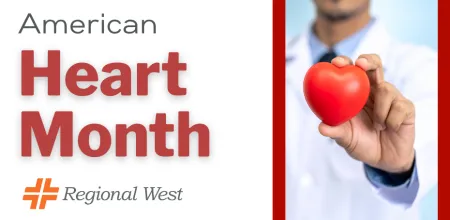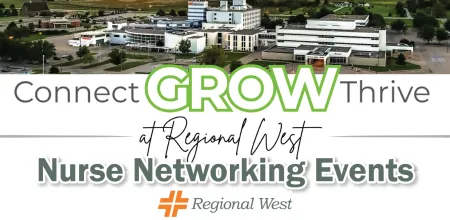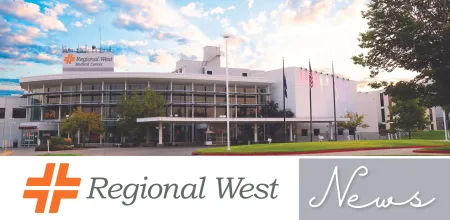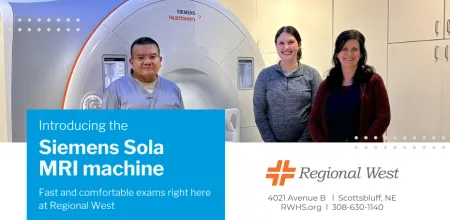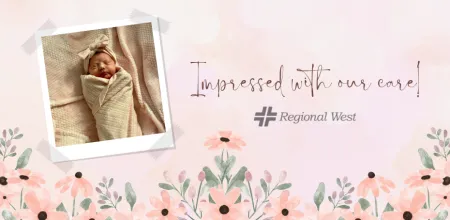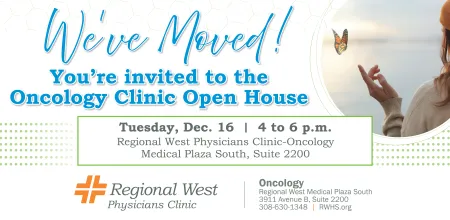Regional West Encourages Stroke Education on World Stroke Day Saturday, October 29

SCOTTSBLUFF, Neb., ― When a stroke occurs, every minute matters. On World Stroke Day, physicians, providers, and staff with Regional West’s Stroke Program encourage the public to learn stroke’s signs and symptoms and take actions to reduce the risk of stroke.
According to the American Stroke Association, a stroke occurs when a blood vessel that carries oxygen and nutrients to the brain is either blocked by a clot or bursts. This means part of the brain cannot get the blood and oxygen it needs, which leads to brain cells dying. Though the chances of stroke increase with age, a stroke can happen to anyone at any time.
Stroke symptoms can include numbness or weakness in the face, arm, or leg, especially on one side; confusion or trouble understanding other people; difficulty speaking; and trouble seeing. You can also spot the signs of a stroke through the acronym B.E.F.A.S.T, which stands for balance, eyes, face, arms, speech, and time.
Immediate medical treatment may minimize the long-term effects of stroke, and could even prevent death.
“It’s important to know that stroke is treatable if care is received as quickly as possible after the onset of symptoms,” said Janelle Schroeder, MSN, RN, Regional West Stroke Program and Certifications coordinator. “Time is brain, meaning lost time equals lost brain cells. If you see the signs of stroke, call 911 immediately.”
High blood pressure, high cholesterol, obesity, and diabetes can increase the risk of stroke. To reduce your risk, the American Stroke Association recommends lowering high blood pressure, sticking to a healthy diet, and refraining from smoking.
The Stroke Program at Regional West provides award-winning stroke care to the region. In addition to being certified as a Primary Stroke Center by The Joint Commission, Regional West’s Stroke Program also received the American Heart Association’s Gold Plus Get With The Guidelines® - Stroke quality achievement award for 2022. Stroke patients at Regional West have access to 24/7 care delivered by a highly skilled team of onsite emergency medicine physicians, hospitalists, primary care physicians, a stroke coordinator, and Stroke Committee.
“Regional West is committed to improving patient care by adhering to the latest treatment guidelines,” said Leslie S. Cavazos, MD, medical director of Regional West’s Stroke Program and Regional West’s Acute Rehabilitation Unit (ARU). “We are honored to serve the individuals living in western Nebraska, Wyoming, Colorado, and South Dakota.”
To learn more about Regional West’s Stroke Program, visit https://www.rwhs.org/services/trauma-emergency/stroke, or call Janelle Schroeder at 308-630-1907.
Regional West Health Services in Scottsbluff, Neb., is the parent company of Regional West Medical Center, a 188-bed regional referral center and the only Level II Trauma Center in Nebraska west of Kearney. As the region’s only tertiary referral medical center, Regional West offers care that spans more than 32 medical specialties provided by over 28 physician clinics. With nearly 300 in-network providers and approximately 2,000 staff members, Regional West provides comprehensive and innovative health care services for the people of western Nebraska and the neighboring states of Colorado, South Dakota, and Wyoming.
